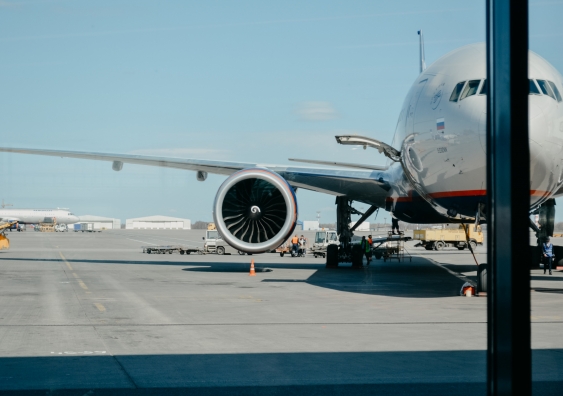
- Findings paint a bleak picture of little or no financial and health support from governments for their citizens stuck overseas.
- At least two-thirds of those stranded aboard experienced financial distress and moderate-to-severe levels of depression—a rate that is substantially higher than the general population and health care professionals in the pandemic.
New research being presented at this year’s European Congress of Clinical Microbiology & Infectious Diseases (ECCMID) in Copenhagen, Denmark (15-18 April) reveals the high human costs and negative impacts of border restrictions and travel bans during the COVID-19 pandemic on citizens stranded abroad.
The research by Associate Professor Holly Seale from UNSW, Sydney, Australia and colleagues, also highlights the poor level of financial and health support provided by national governments for their citizens stuck overseas.
These measures have affected a variety of groups including tourists, business travellers, families, international students and short-term migrant workers.
“Very little attention has been paid to the unintended consequences of these restrictions on people’s lives and wellbeing,” says Dr. Seale. “Often the focus is on tourism and holidays, yet many tens of thousands of people were separated from their partners or families for 18 months or more. We hope our findings will help policymakers plan and communicate support packages for this vulnerable population in future public health crises.”
In a large programme of research, involving four separate studies, the researchers mapped the impact of border and travel restrictions on international and Australian travellers.
Limited financial and health support from national governments
First, they analysed government COVID-19-related information online and support options provided by 11 countries [1] to their citizens stranded overseas in June 2021.
The analysis found that most countries provided some level of support around repatriation options; border control and re-entry measures; medical assistance; and traveller registration. But no country provided all these types of support.
Moreover, only three countries provided information and support for emergency housing (UK, Australia and Canada) and just five offered some form of mental health support (UK, Australia, Canada, New Zealand, USA). Less than half (5/11 countries) offered some form of financial assistance (UK, Australia, Canada, France, USA).
Worse still, the quality of COVID-19-related information provided by government websites in the four countries examined (Australia, Canada, UK, and France) was poorly accessible, particularly for people with low literacy, disabilities, or limited English language proficiency.
“Our findings highlighted gaps, inconsistencies, and potential inequities in support available, and raise issues pertinent to the quality, accessibility, and usability of information,” says Dr. Seale.
Alarming rates of depression and anxiety
In further research to examine the psychological and financial impact of COVID-19 travel restrictions, the team surveyed more than 2,400 individuals stranded abroad across all six regions globally between July and September 2021 and November and December 2021. Over half had been stranded for longer than five months, with the majority having more than one flight cancellation or change.
Almost two-thirds (64%) of the sample reported financial stress and moderate-to-severe depression, and over 40% experienced anxiety and nearly 60% reported being stressed. In addition, 1 in 10 experienced homelessness.
The levels of distress were found to be even higher in those separated from their partners or immediate families and temporary visa holders. Of these, over 71% reported financial stress (with an average expenditure of US$7,285); 77% experienced moderate-to-extremely severe depression; and over half reported moderate-to-severe anxiety (52%) or stress levels (63%).
“The levels of distress reported by this particularly vulnerable group are dramatically higher—over 50% more severe in some cases—than those reported by migrant workers, healthcare workers, and the general population during the pandemic,” adds Dr. Seale. “Respondents also reported little to no assistance from their national governments, highlighting the importance of providing additional support to this vulnerable group in future public health crises.”
Governments need better ways to communicate
Finally, the research team asked survey respondents about how they accessed information on COVID-19 travel restrictions and its perceived usefulness. The vast majority (78%) thought social media groups were most useful, with Facebook being the most useful and most used (87%)—suggesting that this platform could be particularly influential for governments to disseminate information on future travel restrictions.
In contrast, government sources, including websites, call centres and local embassy social media posts were reported as being the least useful.
However, this obscures the role age and gender play in information-seeking behaviour. For instance, women tended to find social media more useful than men, who tended to appreciate information provided by friends and family more. For citizens and permanent residents stranded abroad aged 50 and above, the preferred method for governments to circulate information was via a designated website, whereas for those aged 50 and younger, social media, government emails and a dedicated website were recommended.
“The shift towards seeking information from social media rather than more traditional sources brings with it the challenge of curbing widespread, harmful misinformation. Over 60% of our respondents reported inaccurate or misleading information within social media groups,” says Dr. Seale. What’s more, information seeking is not one-size-fits-all, underscoring the need for governments to consistently amplify clear, accurate, and timely information through multiple communication channels.”


